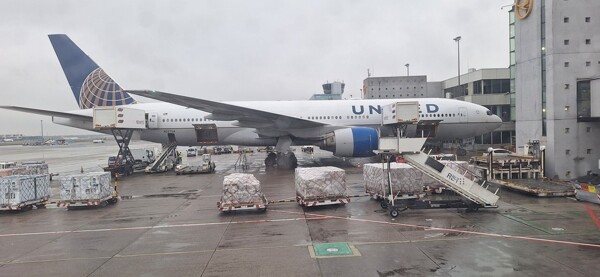
Argentina's aviation sector is facing a new labor conflict that will impact logistics and air safety for much of November. The Association of Technicians and Employees of Aircraft Protection and Air Navigation Security (ATEPSA) has announced a strike schedule extending over nine days, from November 3 to November 30. These measures have been deemed 'illegitimate' by the Argentine Air Navigation Company (EANA).
ATEPSA's actions will consist of eight-hour strikes, which, at this stage, will exclusively affect the takeoffs of domestic cargo flights. Additionally, the union announced that it will seek to paralyze, starting November 3, all training and instruction activities for EANA personnel, as well as all service commissions, which are considered fundamental for maintaining the technological infrastructure of air navigation services.
From EANA, the measure was labeled 'illegitimate,' asserting that the union's argument of 'non-compliance with the collective agreement is false,' as it is 'currently in full execution and ends in December.' Criticism of the measure has escalated to the political level, where official sources stated that the ATEPSA strike is 'purely political' and part of a long-standing conflict. This stance denounces the 'intransigent and extortionate' attitude of the 'Kirchnerist union caste,' which is accused of never being willing to negotiate, seeking only to 'harm'.
Impact and Schedule
The direct impact on cargo flights could cause significant delays in the country's logistics and commercial chain. The ATEPSA union argues that the strike is due to EANA's failure to comply with previously assumed labor agreements, especially those related to the Collective Labor Agreement and the salary guideline. They denounce the breach of commitments made in previous hearings, despite the end of the mandatory conciliation period.
Paola Barritta (General Secretary of ATEPSA), stated that the aviation authorities have presented 'biased reports and unfounded arguments, seeking to discredit the union's action measures and hinder the constitutional right to strike.'
ATEPSA announced that the disruptions in the first stage would only affect the takeoffs of cargo aircraft and in-person and virtual training for EANA personnel, with a schedule of 9 night shifts (from 10:00 PM to 6:00 AM) between November 3 and November 30, but they guarantee exceptions for sanitary, humanitarian, state, and search and rescue (SAR) flights.
The chambers that group airlines have questioned previous strike measures, calling them 'unnecessarily opportunistic' and warning about the difficulty of rescheduling flights, which impacts both passengers and cargo transport.
The Air Traffic Controllers' strike schedule involves the following days: Monday, November 3; Thursday, November 6; Sunday, November 9; Friday, November 14; Monday, November 24; Thursday, November 27; and Sunday, November 30. The union indicated that the measures could be extended if there is no response to its demands.














